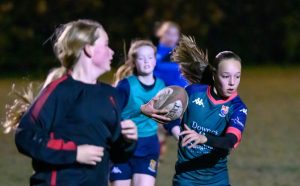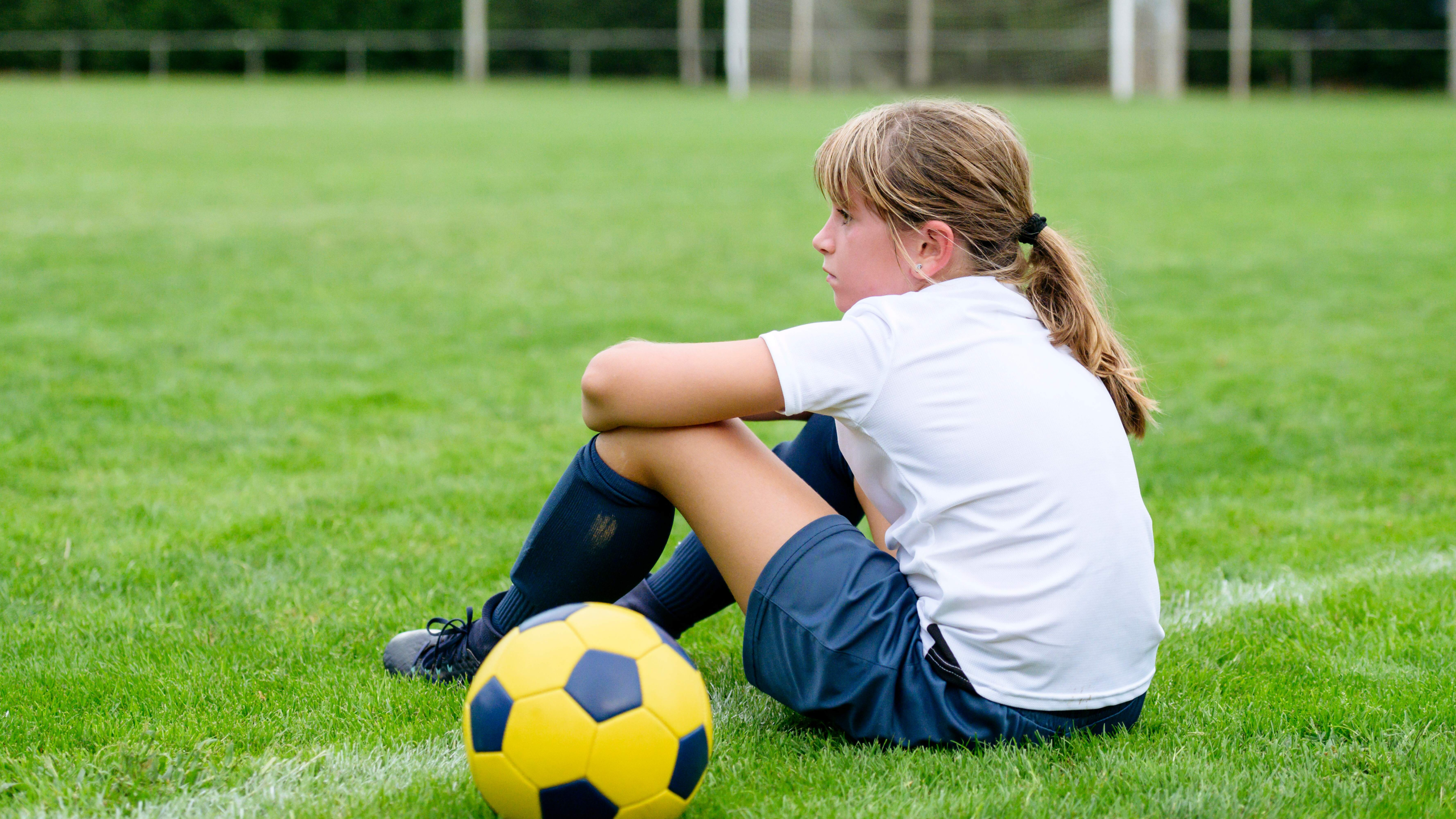
bombarded by messages and labels that undermine their self-belief, crush their confidence, and make them feel as though sport is not a place for them. Research from charity Women in Sport, released to coincide with International Women’s Day, has found girls are hearing and seeing daily messages which imply that they are not as competitive or as good at sport as boys and that they don’t belong in sport.
Girls as young as five years old are being
“When we play badminton, the teachers don’t tell me I’m doing well, but seem to notice the boys more when they are doing something good in football.” 9-year-old girl.
-
57
%
of parents of girls said their daughter had felt excluded from sport
-
26
%
of parents of girls had heard that sport 'wasn't for them'
The report, Sport, stereotypes and stolen dreams: Why girls still feel they don’t belong in sport, conducted in depth work with 24 families who have daughters and ran two nationally representative surveys over 2,000 parents of girls and boys aged 5-11 years old.* It found girls are heavily influenced by parents, family, peers and the school environment, with marketing and media playing more of a role as girls get older.

The research discovered young girls are internalising gender stereotypes and negative messaging which can make them feel as though there is limited value in taking part in sport and physical activity. Previous research has found that 75% of girls have heard negative remarks about girls or women in sport from peers, family members, teachers and coaches.**
Phrases like; ‘sport isn’t for girly girls’, ‘girls are delicate’ and ‘you throw like a girl’ can reinforce negative perceptions around physical strength, capability and potential.
“She’s a girly girl so would not like a sport like rugby where it’s all about getting rough and dirty.” Mum of 9-year-old daughter
“Boys are more combative and aggressive while girls are more caring and maternal. Boys like getting dirty and messy while girls less so.” Dad of 5-year-old-girl
The long-term consequences of this can be difficult to reverse. By the time girls reach 17-18 years old just 28% describe themselves as ‘sporty’, compared with 58% of boys.*** This gap continues into their adult lives, with women and girls of every age group being less active than men and boys. Girls are also far less likely to enjoy participating in sport than boys. **** Sadly, the survey found fewer than a quarter (23%) of parents would describe their daughter as resilient.

Stephanie Hilborne OBE, CEO of Women in Sport said: “Girls aren’t born underconfident,
they are being held back by gender stereotyping. All children deserve the opportunity to
reach their full potential in sport and in life.
“Rather than girls being encouraged to achieve whatever they set their mind to, they’re surrounded by messages telling them they’re fragile, weak and don’t like competition. We
know that sport can teach pivotal life skills like resilience, courage and self-belief, but far too many girls are missing out as they’re being pigeonholed into what society expects of them.
“We want to inspire more women into leadership positions within government, business and sport and see them celebrated for their achievements. But currently girls are competing in the race of life from a staggered start point. We must all recognise this disparity and work together for change.
“If we are to give girls an equal chance to thrive we must unburden them from gender stereotypes, lift the labels and surround them with the expectation they will succeed.”
If we are to give girls an equal chance to thrive we must surround them with the expectation they will succeed.
Stephanie Hilborne OBE, CEO of Women in Sport

Currently girls are steered towards individual sports like dance and gymnastics – just 23% of parents say they’d prefer their daughters to take part in team sports, including rugby and football, compared with 50% of parents of boys.
Women in Sport is calling for parents, schools and coaches to help create a positive environment to enable girls to develop a passion for being active.
We have developed five factors for success
1. Surround girls with the expectation that they will succeed: Parents, teachers and peers must help to change the narrative by showing that they value girls taking part in sport and expressing expectations that they will do well.
2. Build girls’ skills early so there’s a level playing field: Encourage, expect, and support girls from a young age to master the fundamental skills they need to succeed in sport. Skills give sport meaning for girls, make competition fairer and success more attainable, building and sustaining self-belief.
3. Don’t ‘dumb it down’ for girls: Stop the messaging of young girls being fragile, weak and not liking competition. Instead reinforce the expectation that they can be courageous, powerful and fearless in their own way and are expected to be, and can be, good at sport.
4. Provide more opportunities for young girls: Girls need to have as many opportunities as boys in school PE, after-school clubs and in the community, particularly in team sport. Opportunities must be visible, accessible and create an environment where girls are genuinely welcomed and equally valued.
5. Harness the school and after school environment: Teachers and coaches need to invest in closing the skills and confidence gaps between boys and girls. Use school to embed the right attitudes amongst boys towards girls in sport, so there is greater appreciation, value and respect for girls playing sport.
Key stats from our latest representative survey in 2023
Parents’ perceptions of their children
- Only 27% of parents describe their daughters as ‘sporty’, compared to 37% of parents of boys.
- 40% of parents of girls ages 5-7 describe their daughter as a ‘girly girl’.
- A third of parents (33%) of girls ages 5-7 describe their daughter as a ‘princess’.
- Less than half of parents describe their daughters as confident (43%), determined (38%), strong (35%).
- Only 23% of parents describe their daughters as resilient.
Participation and provision
- Only 23% of parents of girls say they prefer their daughters to take part in team sports, compared to 50% of parents of boys.
- Over half (57%) of parents of girls said their daughters had felt excluded from sport or physical activity, and 26% said this was because their daughter was told it ‘wasn’t for girls’.
- 57% of parents say sports clubs are the most important activity for their daughter to take part in outside of school, but just under a third (31%) say affordability is the main barrier for their daughters that don’t.
* These surveys were conducted in December 2021 and February 2023.
** (Spears Brown, C. and Stone, E. A. (2016) Chapter Four: Gender Stereotypes and Discrimination: How Sexism Impacts Development. In: Horn, S., Ruck, M. and Liben, L. (eds.) Equity and Justice in Developmental Science: Theoretical and Methodological Issues)
*** Women in Sport (2022) Reframing Sport for Teenage Girls: Tacking Teenage Disengagement
****2021-22 Sport England Active Lives Children and Young People survey





